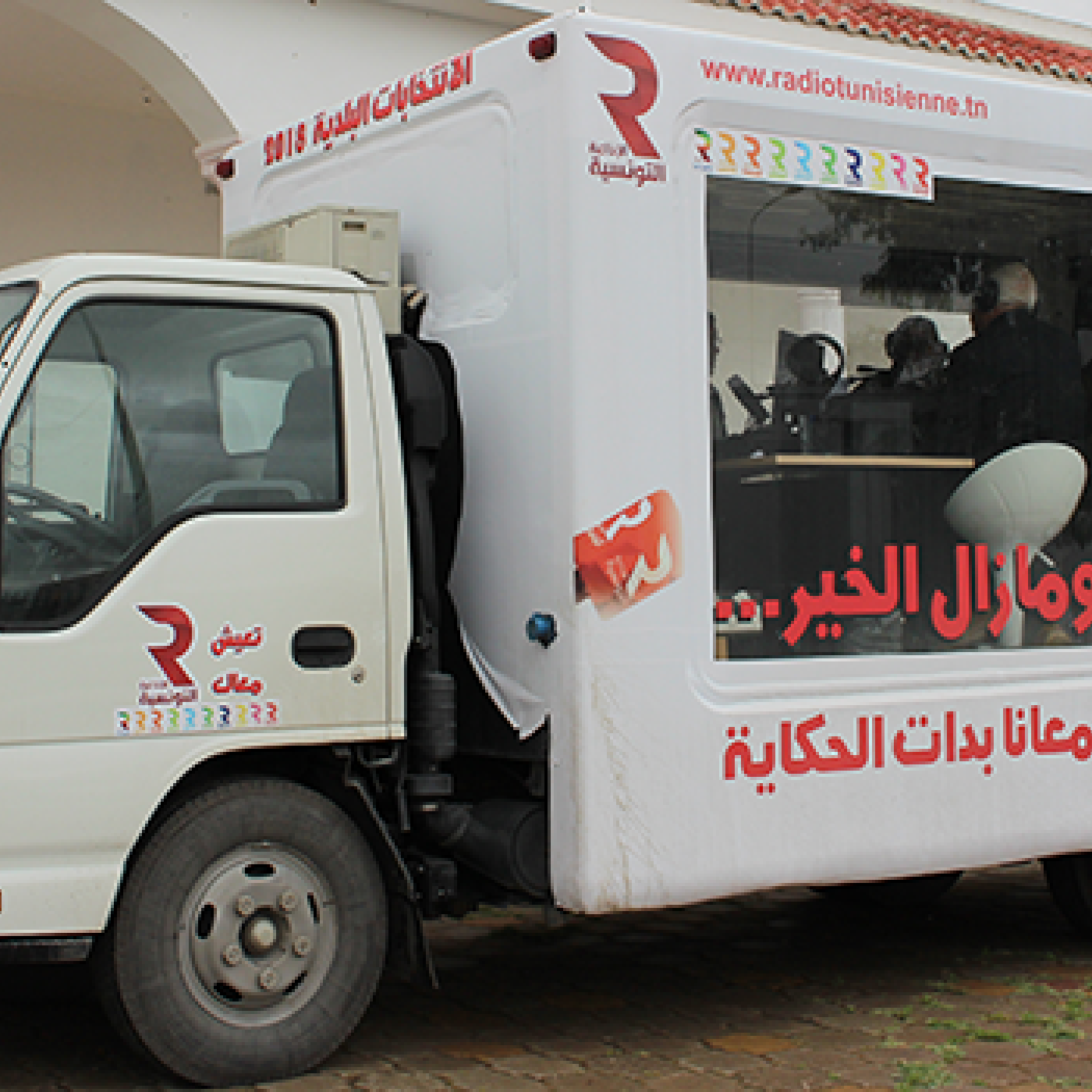Search
Filter by
Type
Publication date
Language
Type
Publication date
Language
News & Updates
Feature
Mobile Radio Station Reaches Half a Million Tunisian Voters
With support from the U.S.-Middle East Partnership Initiative, in 2017 IFES built a mobile radio station ahead of Tunisia’s municipal elections on May 6, 2018, and drove it up and down the length of Tunisia, broadcasting radio programs on elections in remote and hard-to-access areas.
Publication
Report/Paper
Elections on Trial: The Effective Management of Election Disputes and Violations
Mechanisms for election dispute resolution must increasingly withstand new forms of sophisticated political and electoral manipulation. A new IFES research paper, Elections on Trial: The Effective Management of Election Disputes and Violations, outlines the fundamental principles for procedural justice and open justice in election cases.
June 12, 2018
News & Updates
Feature
Haythem Srihi: From H4D Participant to Municipal Councilor
IFES launched an original initiative called Hack4Democracy (H4D), a combination of democracy camps and hackathons which uses technology to engage Tunisian youth in civic activism. At just 24 years old, Haythem Srihi is a member of the H4D finale’s winning team and a newly elected municipal councilor from the city of Jammel. Haythem’s success in both the H4D competition and in the May 6 municipal elections serves as a prime example of what Tunisian youth can achieve when they are given the tools to prosper and have the drive to overcome societal barriers.
News & Updates
Feature
Bilel Mansouri: From H4D Participant to Change Maker
To address a growing lack of civic engagement among Tunisian youth, IFES launched an original initiative called Hack4Democracy (H4D) in Tunisia, a combination of democracy camps and hackathons. Bilel Mansouri used his experience in a H4D camp and applied what he had learned to create Detecti, a mobile and web application, and start Jeunes Actifs, a civil society organization.
Election FAQ
Elections in Tunisia: 2018 Municipal Elections
On May 6, Tunisia held municipal elections to fill 7,212 council seats in 350 electoral constituencies, which were the first held since the 2011 popular uprising that ousted President Zine El Abidine Ben Ali. To help you understand this important electoral process, IFES provides Frequently Asked Questions (FAQs) on Elections in Tunisia: 2018 Municipal Elections.
News & Updates
Feature
Technological Innovation at the Service of Youth Engagement
To address a growing lack of civic engagement among Tunisian youth, IFES launched an original initiative called Hack4Democracy (H4D) in Tunisia, a combination of democracy camps and hackathons, putting the latest technological advances at the service of youth engagement. H4D promotes civic engagement through the competitive creation of innovative tools using new technologies, and builds professional competencies for youth by providing networking opportunities, mentoring and incubation of the most promising projects.
News & Updates
Feature
Mobilizing Illiterate Tunisian Women Living in Rural Areas for the May 6 Municipal Elections
IFES' partner, the Tunisian Mediterranean Center (TU-MED), found that 83 percent of rural Tunisian women said they did not vote during the 2014 national elections. Due to these findings, IFES and TU-MED launched several outreach campaigns in 2017 targeting illiterate women living in rural areas. IFES trained 286 female outreach ambassadors to engage in face-to-face dialogue regarding the electoral process and the importance of decentralization. The ambassadors reached 7,680 women, encouraging them to register to vote in municipal elections scheduled for May 6, 2018.
News & Updates
Feature
Celebrating World Radio Day in Tunisia
On May 6, 2018, Tunisia will democratically elect 350 municipal councils for the first time. This landmark election will set the country’s decentralization into motion. In this context, IFES worked toward building the capacity of local journalists in covering the forthcoming elections in an impartial, balanced and equitable manner. Access to accurate and objective information on elections is essential for the voters to make an informed choice at the ballot box.
News & Updates
Feature
Giving a Voice to Tunisia’s Voiceless Citizens
The upcoming May 6 municipal elections in Tunisia will mark the first time citizens will democratically elect their local leaders and launch the decentralization process in the country. IFES employed a multi-pronged, nationwide, interactive voter education campaign – primarily targeting rural and traditionally marginalized voters – that reached six million voters during the voter registration period in 2017.
News & Updates
Feature
Advancing Disability Rights in Southeast Asia through Regional Network of Advocates
In 2011, IFES established the General Election Network for Disability Access (AGENDA) across Southeast Asia. A creative partnership between disabled persons’ organizations (DPOs) and election-focused civil society organizations, AGENDA serves as a forum to improve access to political and electoral opportunities for persons with disabilities by increasing public awareness and elevating advocacy efforts that call for change.











